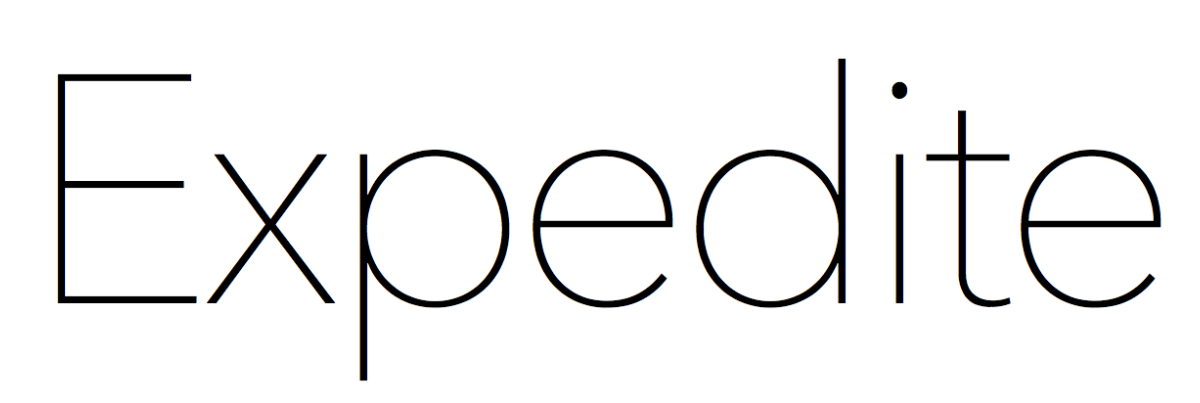Michelin + TripAdvisor Partner

12.4.2019
Welcome to Expedite, a (mostly) weekly newsletter by Kristen Hawley covering what’s important in restaurant technology.
All About Relevance
On Tuesday, Michelin announced a partnership with TripAdvisor and its restaurant reservations company, TheFork. It has a few aspects. Part one, content: Michelin rankings (that’s one, two, or three stars, plus “Bib Gourmand” ratings (those are the so-called affordable options) and the new-ish Plates, which I still don’t really understand) will be added to restaurant listings on TripAdvisor.
Part two: Michelin will sell Bookatable, an online reservations platform, to TheFork, aka La Fourchette, an online reservations platform that TripAdvisor acquired in 2014. According to a press release, this gives TheFork reach in five new European markets: United Kingdom, Germany, Austria, Finland and Norway and grows TheFork’s restaurant base from 67,000 to about 81,000. (For reference, at this time in 2017, TheFork had 46,000 bookable restaurants.)
This deal, dubbed a “strategic partnership,” means that Michelin has offloaded its reservations platform, which it bought in early 2016. Michelin still owns Tablet Hotels and its associated booking site, as well as The Wine Advocate, which it recently took a 100 percent ownership stake of. (Previously it controlled 40 percent.)
Wait, there are restaurants on TripAdvisor?
Yep, 5.1 million of them worldwide. The company also offers TripAdvisor Premium for Restaurants, a suite of products allowing restaurants to further customize their listings with things like photos and reviews, plus backend analytics. Yelp does this, too, with its new-ish Yelp Connect product. It’s not a terrible business model, create a free listing for the general public to see, build up its SEO (that’s search-engine optimization, the term for leveraging one’s placement within Google search results), then sell the ability to customize what potential customers see. TripAdvisor doesn’t share its rates but Yelp Connect costs a restaurant business $199 per month, and I assume TripAdvisor is competitive.
But what does it mean?
TripAdvisor wants to be the default trip-planning application for travelers, and restaurant-savvy travelers love to chase those Michelin stars even if chefs and restaurateurs themselves don’t always want them nor the attention they bring.
By the companies’ own admission, inclusion in the Michelin guide — and, subsequently, exposure to TripAdvisor’s 460 million monthly unique visitors — shines a huge spotlight on a restaurant business. In many cases, that’s great news. In some, it’s a bit unwelcome.
Really, all of these strategic partnerships go after two things: relevance and reach. Michelin’s notoriously secretive ratings and review system may not be playing great in current food media circles — it’s often deemed restrictive and reductive, at best. But it does carry clout with diners and is a recognizable consumer brand. By extending the reach of its branding and working to become top of mind to those who are searching and booking restaurant reservations, especially while traveling, Michelin is broadening its consumer audience. It’s also ostensibly creating demand/competition/envy among operators for a coveted spot on the list.
As the reservations platform goes, it’s been almost four years and I’m still trying to figure out what a ratings site wanted with a reservations service — that’s what strategic partnerships are for! It’s probably a decent source of revenue but they’re expensive to operate. TripAdvisor CEO Steve Kaufer explained why when he delivered the company’s third quarter earnings to investors. “[The] key focus for us is building the habit,” he said, of TheFork’s business. “And the more habit we can build amongst more people, the better off.”
What else is happening?
Postmates laid off "dozens" of workers, and closed its Mexico City office. According to reports, it's also looking for a buyer, even though it filed paperwork ahead of a presumed 2019 IPO earlier this year. Not sure how many times I'll write this phrase in the coming months but: Blame WeWork.
DoorDash is probably considering a direct listing instead of an IPO. Direct listings aren’t attached to more funding — which DoorDash has been rolling in of late — and also give employees and investors faster access to the new public value of their shares. Recently, Spotify and Slack have gone this route; Airbnb is expected to do the same in 2020. It also spares the company the time and energy of the traditional roadshow — where executives essentially “sell” the company to potential underwriters, opening it up to pretty intense scrutiny. (Again, blame WeWork? This is the phase when that company's tower of cards fell apart, remember?)
In-car voice-powered food ordering is here. Well, it’s in a pilot phase in some BMW vehicles with some restaurants, but this does feel like an inevitably, right? Plenty of spots do this already with Amazon’s Alexa and Google Home. Cars are the next logical step.
OpenTable released some year-end numbers. A few of note: the company says it has seated over 10 billion diners since its inception in the late '90s. Of the 13 million reviews posted by diners this year, 8 million were five-star — that's the highest rating available.
--
About:
Expedite is produced by Kristen Hawley, a San Francisco-based journalist with over six years of experience covering the restaurant technology industry. Previous iterations of this content were available via Chefs+Tech and Skift Table. Thanks for reading.
A reminder: you’re receiving this email because you were a previous Chefs+Tech subscriber or because you’ve recently subscribed to Expedite. Thank you!


